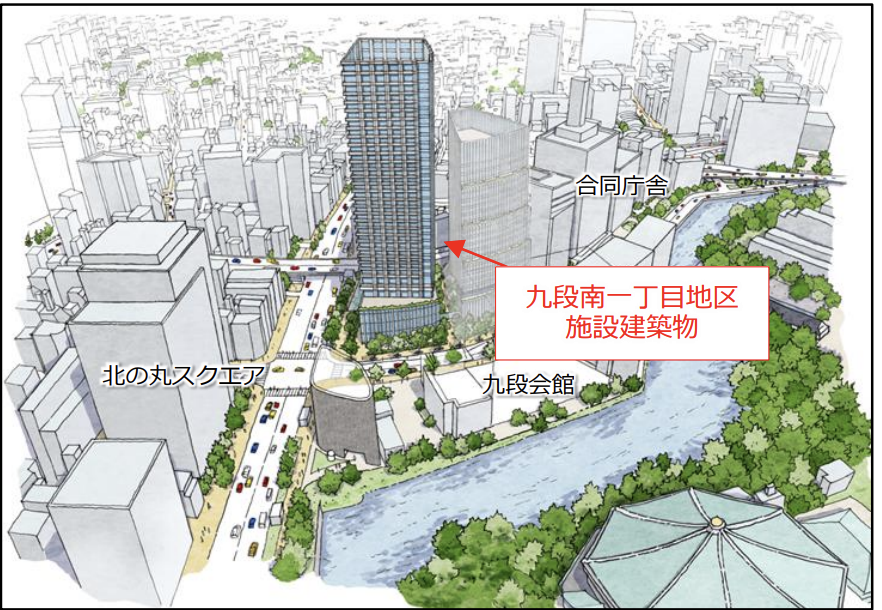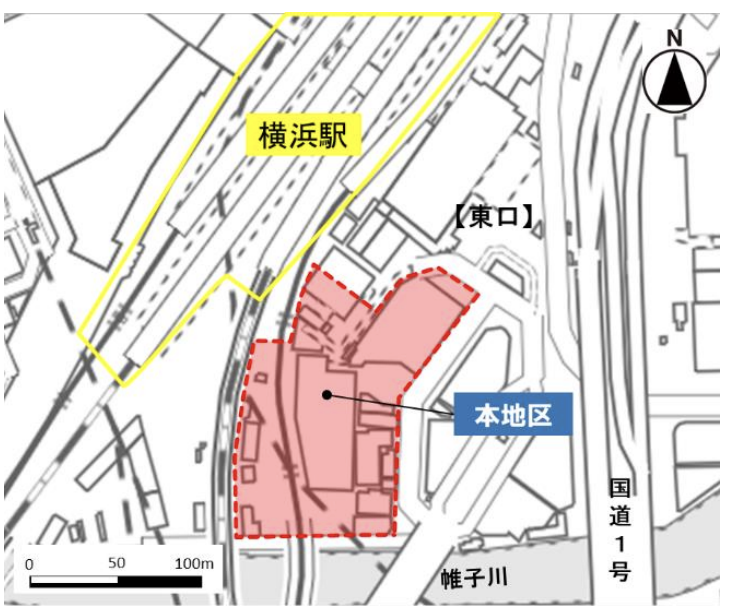Today's real estate selection has shifted from simply "buying" a property, as in the past, to a more intrinsic value of what kind of "lifestyle" one can realize there.
In particular, the rise of Generation Z, the digital natives, is bringing a new sense of value to the housing market, and is significantly changing the conventional wisdom of real estate selection.
In this article, as a real estate expert, I will explain the new norm of real estate selection in the modern age, based on the latest market data and the results of a generational awareness survey. We will provide hints on how to choose a truly valuable home that is in line with your lifestyle and life stage, as well as asset value.
Values in Real Estate Selection are Shifting from "Ownership" to "Use
In the past, owning real estate in Japan was a kind of status in itself and was considered a major means of asset building. However, with the maturation of the economy and the diversification of values, this thinking has changed dramatically.
In particular, younger people are becoming less concerned with "owning" real estate and more focused on the experiences and quality of life that can be gained from it, in other words, its "use value.
Underlying this change is the diversification of work styles and changing lifestyles. With the spread of remote work, there is no longer a need to necessarily live in the city center, and more people are choosing to live in the suburbs or in rural areas.
In addition, the spread of the sharing economy has popularized the idea of not owning things but using them when needed, which has also affected values toward real estate.
Attitudes Toward Home Purchase Differ Among Generations
It is clear that attitudes toward purchasing a home differ significantly among generations. In particular, there is a marked difference in values between Generation Z (in their 20s) and Generation X (in their late 40s and 50s).
| Comparison Items | Generation Z (20-29 years old) | Generation X (45-59 years old) |
|---|---|---|
| Timing of purchase consideration | Change in life stage (marriage, cohabitation, etc.) | When they find a property that suits them |
| What I want in a house | A place where I can enjoy spending time with my family | A place where you can feel at home and gain mental stability |
| Important conditions at the time of purchase | Reasonableness of the price (is it suitable for your household income?) | Convenience of the surrounding environment |
| Awareness of early purchase | Higher percentage of respondents think "younger is better | Lower than Generation Z |
| Sources of information | Websites, SNS, familiar people (parents, friends) | Websites, real estate agencies |
Generation Z tends to view housing as a space that fosters connections with family and friends, triggered by life events, and to place a high value on cost performance.
Generation X, on the other hand, is seeking the convenience of a living environment and a sense of spiritual fulfillment based on their past experiences, and choosing a property from a more practical perspective.
A New Axis of Housing Selection Focusing on "Ease of Living
As the values of real estate selection change, the measure of "livability" is becoming more important than ever. This is a way of thinking that evaluates a home from multiple perspectives, including the surrounding environment, community, and compatibility with future life plans, in addition to the quality of the floor plan and facilities.
Here, we explain the three new axes that make up "livability.
1. Lifestyle compatibility
In selecting a modern home, the emphasis is not on the pursuit of a uniform "ideal home," but rather on how well it fits into an individual's lifestyle.
For example, those who enjoy the outdoors as a hobby may prioritize an environment rich in nature and ample storage space, even if it is a bit far from the city center. If you work mainly from home, a floor plan that provides a quiet and focused workspace will be more important than the convenience of a commute.
The first step in selecting a highly satisfactory residence is to take a deep look at your own values and the way you spend your daily life, and to envision in concrete terms the kind of living environment that will enable you to realize them.
2. Balance between asset value and usage value
While it is still important to view real estate as an asset, its meaning is changing. In the past, the main objective was to gain capital gains from the purchase price, but nowadays, asset value is being questioned from a longer-term perspective, such as profitability when rented (income gain) and ease of future resettlement.
At the same time, it is necessary to consider the balance with the "use value" obtained by living in the property. For example, even if the property value is a little low, if you can reduce your daily commuting time and spend more time with your family, it can be said to have a very high use value.
It is important to rethink what "richness" means to your life, and not just the asset value.
3. Renovation as an option
Renovation," which involves purchasing a used property and renovating it to suit one's lifestyle, is now a viable option, regardless of whether it is a newly built property.
Compared to new construction, renovation offers the advantages of lower costs, a greater possibility of selecting a property in a good location, and greater flexibility in floor plans and interior design.
In particular, Japan's housing market is in a state of "housing glut," and there is an abundance of high-quality used properties. Searching for a property with renovation as a prerequisite will greatly expand your options, and you may be able to create a home that is even closer to your ideal.
However, since specialized knowledge of property structure and regulations is required, selecting a reliable partner is the key to success.
Conclusion
In this article, we have explained, along with the latest data, the current situation in which modern real estate selection is shifting values from "buying" to "living.
Understanding the difference in values between generations and having a new evaluation axis of "ease of living" is extremely important in selecting a home in the future.
Organizing Points
Real estate selection is shifting from an emphasis on "ownership" to an emphasis on "value for money," with Generation Z tending to focus on life-stage changes and cost performance, and Generation X on convenience and emotional stability.
The new axis for measuring "livability" includes "compatibility with lifestyle," "balance between asset value and use value," and "renovation.
Thinking carefully about what kind of home truly matches your values and life plan, without being bound by stereotypes, will lead to a prosperous future.
Choosing real estate is one of life's major decisions. We hope that you will make a choice that you will not regret, while taking advantage of the knowledge of our experts.
At INA&Associates K.K., we will work closely with each client's life plan and make the best proposals as real estate professionals. If you have any questions about real estate, please feel free to contact us.
Frequently Asked Questions (FAQ)
Q1. What are the advantages and disadvantages of buying a house while young?
A1. Advantages include the ability to set a longer mortgage repayment period, which reduces the monthly burden, the life insurance effect of purchasing group credit life insurance, and most importantly, the "asset" you will acquire.
The disadvantage is that it may be difficult to adjust to changes in life plans (e.g., job transfer, career change, etc.). It is important to make a careful decision in light of your future plans.
Q2. Which should I choose, a new house or an existing house?
A2. Each has its own merits and demerits. New construction offers peace of mind with the latest equipment and earthquake resistance standards, but is more expensive.
Used is relatively inexpensive and has the appeal of being able to create a space to your liking through renovation, but requires a professional eye to assess the condition of the property. Which is better depends on your values, budget, and life plan.
Q3. What are the characteristics of properties that are less likely to lose their asset value?
A3. In general, properties with convenient access to transportation, such as being close to a station, having a good surrounding environment, and having access to multiple train lines, tend to maintain their asset values.
In addition, properties in areas where large-scale redevelopment is planned or where the population is increasing can also be expected to have a promising future. However, these are only general trends, and each individual property must be evaluated from a professional perspective.

Daisuke Inazawa
Representative Director of INA&Associates Inc. Based in Osaka, Tokyo, and Kanagawa, he is engaged in real estate sales, leasing, and management. He provides services based on his extensive experience in the real estate industry. Based on the philosophy that “human resources are a company's most important asset,” he places great importance on human resource development. He continues to take on the challenge of creating sustainable corporate value.

.png)











![Definition, Role, and Selection Criteria for Real Estate Management Companies [Focusing on the Importance of Human Resources]](https://app.ina-gr.com/hs-fs/hubfs/AI-Generated%20Media/Images/The%20image%20shows%20a%20businessman%20in%20a%20suit%20holding%20a%20smartphone%20and%20concentrating%20on%20checking%20something%20against%20the%20backdrop%20of%20a%20modern%20office%20building%20Beside%20him%20is%20a%20large%20glass%20window%20letting%20in%20sunlight%20The%20businessmans%20expression%20is%20serious%20his%20ey.jpeg?width=550&height=395&name=The%20image%20shows%20a%20businessman%20in%20a%20suit%20holding%20a%20smartphone%20and%20concentrating%20on%20checking%20something%20against%20the%20backdrop%20of%20a%20modern%20office%20building%20Beside%20him%20is%20a%20large%20glass%20window%20letting%20in%20sunlight%20The%20businessmans%20expression%20is%20serious%20his%20ey.jpeg)

